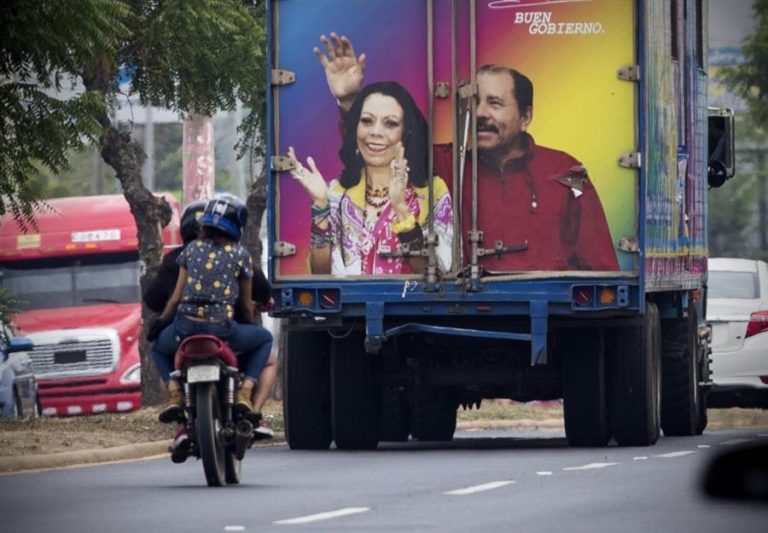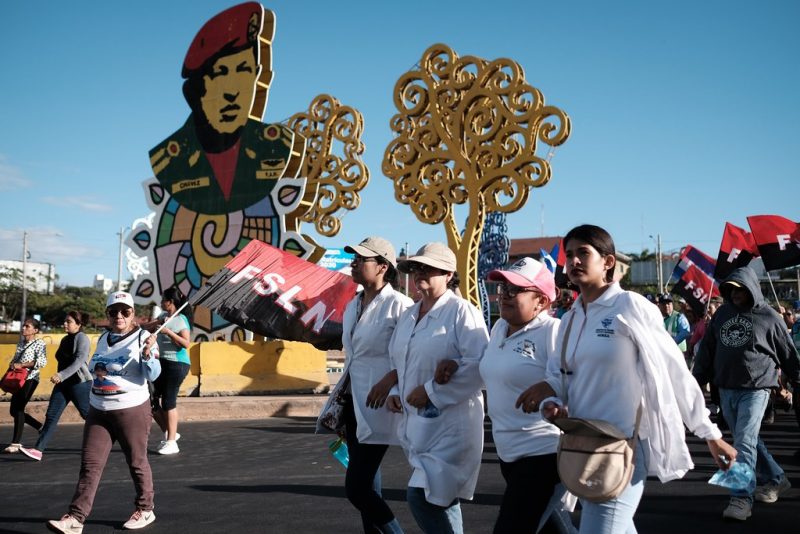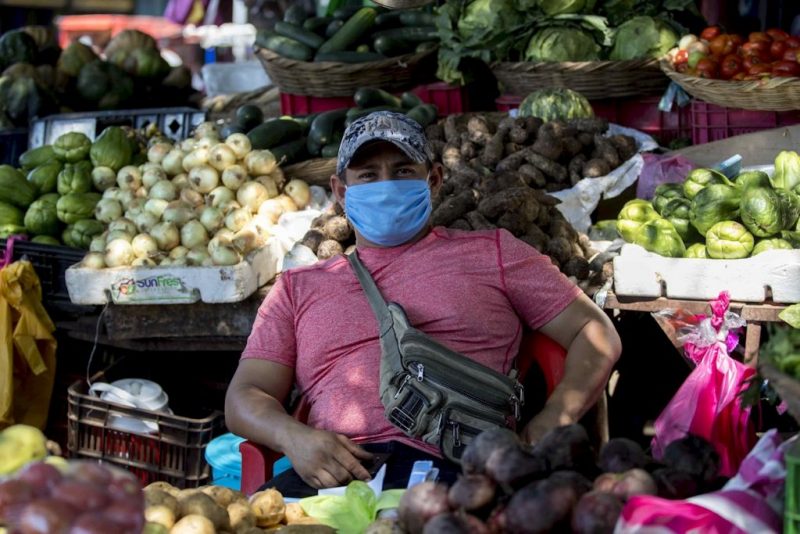15 de abril 2020

The Return of the Military

PUBLICIDAD 1M
PUBLICIDAD 4D
PUBLICIDAD 5D
Nicaragua’s Director of Epidemiology during the 80s: “Don’t wait for more deaths.”

The decision of Daniel Ortega and Rosario Murillo’s government not to implement in Nicaragua any of the preventive measures recommended by the World Health Organization (WHO) for avoiding the spread of Covid-19, “makes no sense”.
This is the view of specialist Leonel Arguello, director of Hygiene and Epidemiology at the Nicaraguan Ministry of Health (Minsa) during the eighties. Arguello feels strongly that the government should be “acting preventively”, even though the official data still reflects no community spread of the virus.
“Prevention is effected before, during and afterwards. To wait to implement prevention until you have a case of community spread is wrong, because prevention is carried out starting beforehand. I believe there’s an enormous confusion here,” the epidemiologist explained to Confidencial.
The latest report of the Sandinista government indicated nine positive cases, one death and a few cases “in follow-up”. They once again dismissed the possibility of community transmission and reaffirmed that all the cases are “imported”, even though Cuba in the last weeks documented four patients that brought the virus back to Cuba with them from Nicaragua.
Minsa’s credibility with the population diminishes with each passing day. In the streets, people don’t believe that only nine positive cases exist in the country. Indeed, a glance towards either the north or the south reveals more than several hundred cases apiece in both El Salvador and Costa Rica.
Arguello explained that if Minsa and the government wanted to know if there really is community transmission or not, they could use the 26,000 test kits given them by the Central American Bank for Economic Integration, plus those they have in reserve, and take a representative random sampling on a national level.
“That’s how I managed things during the 80s. Normally, you talk with the companies that sell you the reagents, and they lend you a testing unit. When they lend you a equipment that will let you process up to 90 tests in 40 hours, you could implement these using a decentralized team throughout the country, not only in Managua. Then, with those tests, you could demonstrate beyond a doubt whether community transmission currently exists or not,” the epidemiologist explained.
Arguello belongs to the Multi-disciplinary Scientific Committee that has attempted to hold a dialogue with Minsa. At present, he doesn’t know how many tests have been done in the hospitals. He notes with regret that the details offered by the Minsa spokespeople aren’t at all similar to those offered in El Salvador or Costa Rica. If they were, he feels, it would ease the mind of the population.
“You don’t get peace of mind by taking masks or gloves away from doctors in the hospitals. Peace of mind comes from transparent communication and information. The pandemic is already here. We already know that we’re going to have a lot of sick people and deaths, so they should act correctly,” he expressed.
The epidemiologist stated that he didn’t have any information about the protocol that the Nicaraguan Government is using to carry out massive diagnostic testing with the 26,000 tests. He indicated that they continue to act with complete discretion, and that he only has access to the same information that all Nicaraguans hear when Carlos Saenz, Minsa’s secretary general, presents his reports to the official media.
“There are two easy ways to conduct a diagnostic test. One is to take random samples all over the country and in that way find out what percent of the population has the virus. If you find it present in some, then there’s community transmission, and the whole question is closed. The second way is to go to all those places where there’s open sewage drains, you take (a sample), and you can verify, since particles of the virus are given off in our urine and feces,” Arguello pointed out.

Contrary to the recommendations of the World Health Organization (WHO), the government of Nicaragua is still holding mass events, despite the Coronavirus emergency. Photo: Carlos Herrera / Confidencial
The “Citizen Observatory” (Observatorio Ciudadano), a citizens information group, has registered over seventy suspected cases based on the symptoms, instead of the five that Minsa is following up on. Regarding this, Arguello recognized that in epidemiology, rumors sometimes prove valid, and if this group has corroborated the numbers so as to come as close to reality as possible, it’s very valuable information.
“It’s not the official statistic, but it has a value as an indicator of how things are. It’s like when you don’t see the fire, but you smell the smoke, you hear the noise that the brush is burning. That has value,” he felt.
Arguello also referred to the number of cases that could develop if the recommendations of the WHO continue being ignored. “How many cases are we willing to have? How many deaths are we willing to see, before what must be done gets done in this country? I believe there shouldn’t be even one more. We already have a young man who died, when he should have lived another 30 or 40 years more. I believe that our tolerance can’t bear up under more deaths, and we can avoid that mortality,” he declared.
This past Easter Week, the National Tourism Institute and some of the mayor’s offices continued promoting contacts and crowds among the population. There were some mass events, such as the election of “Miss Summer in Poneloya”, despite the pronouncement made by Carissa Etienne, director of PAHO, regarding the fact that the Nicaraguan government isn’t following the recommendations of the World Health Organization. In general, however, the citizens opted to protect themselves.
Arguello saw this decision of the citizens as positive and praised the fact that the majority have responded impressively in maintaining their self-care. He pointed out actions like those of a bus driver who made soap and water available so that the riders could wash their hands when they entered the bus. He also noted the fact that in many rural communities, parents opted not to send their children to class.
“The population responded [despite the government’s promotion of their summer tourism plan]. It’s already been shown in China that social distancing – having people stay in their homes and avoid crowds – is what keeps the virus from spreading quickly,” he recalled.

In all of Central America, Nicaragua is the country officially reporting the fewest cases of Covid-19. Photo: EFE / Confidencial
The epidemiologist indicated that the quarantine should be established, with or without community transmission. He insisted that there was no room for doubt, that a closure should be put in place, just as it was done in El Salvador, since this is the last life raft that can be used to slow the impact of the pandemic.
“The fact that the government granted a week off is an intelligent measure, and I hope it’s a prelude to closing the academic centers. I hope they make this decision. As a Multi-disciplinary Scientific Council, we’re willing to support the government and any institution among the different organized groups that have called us. I hope that they begin to take other measures,” Arguello considered.
Regarding the declarations given by the PAHO director last week about the government’s not applying the social distancing measures, and the great concern that exists in relation to their testing, Arguello said that the declaration was tied to pressures from US president Trump who was threatening to cut financial assistance to this organization.
“PAHO nearly gave an award to Nicaragua for the actions it was taking. Now they say the opposite, which is correct, … that their recommendations aren’t being complied with. If that communique has some local effects, excellent; but as of today, PAHO hasn’t issued any calls to the non-governmental organizations, nor have they met with private enterprise, and I understand that they haven’t received the journalists either,” Arguello pointed out.
Arguello also left clear his concern regarding previous declarations of the PAHO staff working in Nicaragua, who initially affirmed that the government was complying with the necessary recommendations and that the community health model would resolve the problem of the pandemic. The specialist doesn’t understand where they got this idea from, since the Nicaraguan health system isn’t like that of Spain or Italy, strong enough to hold up under such a severe blow.
“All the people that have given mathematical projections conclude that by the end of May here, we could have as many as 10,000 deaths. Others projected up to 49,000, and I think you could speak of up to 68,000 deaths by the end of the pandemic. There shouldn’t be deaths, this is an illness that can be prevented if you maintain 6 feet of distance, you don’t touch your face, you don’t shake hands and you stay home,” the expert concluded.
PUBLICIDAD 3M
Periodista. Investiga temas de medio ambiente, corrupción y derechos humanos. Premio a la Excelencia Periodística Pedro Joaquín Chamorro, Premio de Innovación Periodística Connectas, y finalista del premio IPYS en el 2018.
PUBLICIDAD 3D